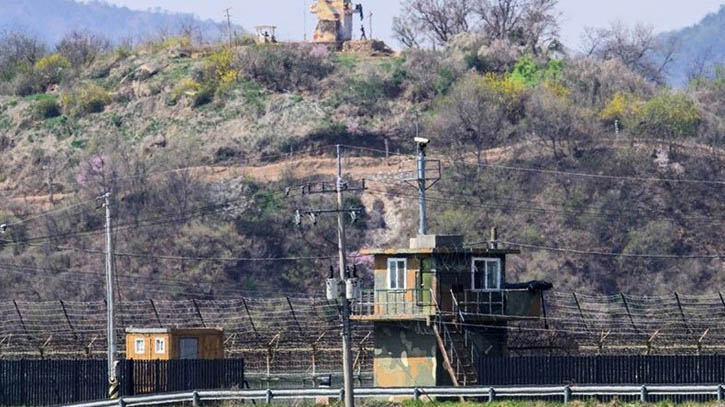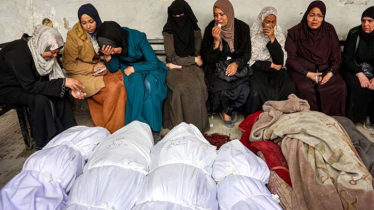
Photo: Collected
A North Korean defected to the South by walking across the heavily fortified border that separates the peninsula, Seoul's military said Tuesday.
Tens of thousands of North Koreans have fled to South Korea since the peninsula was divided by war in the 1950s, but the majority cross the land border into China first.
Preliminary figures from the unification ministry show this year until June some 105 people defected.
On Tuesday Seoul's military said it picked up "one suspected North Korean individual on the eastern front and handed them over to the relevant authorities".
The defector was a staff sergeant, Yonhap news agency reported, who was given some guidance from the South's military during the defection.
The number of defections dropped significantly from 2020 after the North sealed its borders to prevent the spread of Covid-19 -- apparently with shoot-on-sight orders along the land frontier with China.
But, after border controls eased in 2023, the number of defections rose -- with 196 making it to the South last year.
Local media reported that the latest defector walked along the road by the waterfront in eastern Gangwon province, and was wearing a North Korean military uniform when picked up by authorities.
It is the second this month, after another person made it across the de facto maritime border in the Yellow Sea on August 8.
The latest defections come as relations between the two Koreas are at one of their lowest points in years, with the North ramping up weapons testing and bombarding the South with trash-carrying balloons.
Park Won-gon, a professor at Ewha Woman's University, said a rise in defections suggested the "internal situation is bad in North Korea".
He noted news reports of floods in the North -- with state media showing leader Kim Jong Un personally trying to help.
Heavy rainfall hit the North's northern regions in late July, with South Korean media reporting a possible death toll of up to 1,500 people.
In response to North Korea's trash balloon campaign, Seoul fully suspended a military tension-reducing deal and restarted propaganda campaigns along the border.
Such campaigns can take months to have any impact on defections, Park said. "Turning on the loudspeaker doesn't mean the North Koreans are going to defect to the South right away," Park said.
Messenger/Disha








